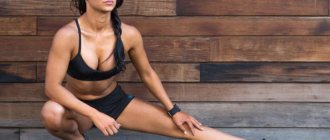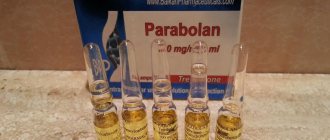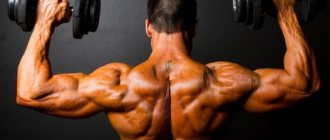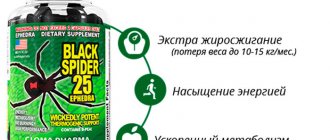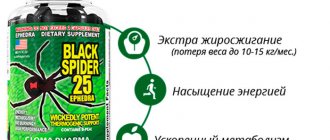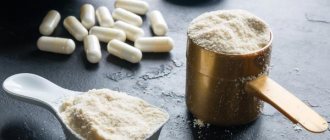- October 20, 2018
- Sports nutrition
- Oskina Oksana Valentinovna
Amino acids are necessary for the normal functioning of the human body. They participate in all biological processes. A sufficient amount of them is especially important for people involved in sports.
Some amino acids are synthesized in the body, but there are essential ones that come from food. There are not always enough of them, so sometimes taking them additionally is recommended. One of the amino acids that is often deficient in an active lifestyle is methionine. In bodybuilding, this substance is often taken, as it is involved in building muscles and also has many other beneficial properties. But amino acids have a complex effect on the body, like many medications. There are also certain contraindications to taking them, and if the dosage is exceeded, side effects may occur. Therefore, it is advisable to start taking this amino acid after consulting your doctor.
What is methionine
This amino acid was discovered in the mid-20th century. It was called vitamin U, from the first letter of the Latin word for ulcer. After all, it was discovered that this substance has an antiulcer effect. Methionine is classified as an amino acid, but is considered a vitamin compound. It is an alpha aliphatic amino acid that is unique in that it contains sulfur. The substance is not synthesized in the body, but comes from outside. Despite the fact that methionine is found in many foods, it is often recommended to take it additionally.
Biological activity of amino acid derivatives
Methionine compounds are widely used in medicine, which have a stronger effect than the pure substance.
Thus, S-adenosylmethionine (also known under the trade name heptral) is a coenzyme and is formed as a result of an enzymatic reaction between aminocarboxylic acid and ATP. Ademetionine is used for:
- depression – stimulates the synthesis of dopamine – the hormone of joy, pleasure and motivation;
- intrahepatic cholestasis, characterized by impaired synthesis of bile components, has hepatoprotective properties;
- liver fibrosis, accompanied by an increase in the amount of connective tissue in the organ, has anti-scarring activity.
Methiosulfonium chloride, popularly called vitamin U (from the Latin word “ulcus”, meaning “boiling”, “ulcer”), as you might guess, promotes wound healing in gastric ulcers. The substance is found in high concentrations in cabbage juice, celery, alfalfa, and egg yolk.
INTERESTING! Carbon 11-labeled L-methionine tends to accumulate in malignant tumors, which is why radiologists use it when studying brain tumors.
Useful action
After the discovery of this amino acid, its properties were investigated. It has been revealed that methionine is very beneficial for the body; many biological processes cannot do without it. It is now known that this amino acid has the following beneficial properties:
- protects the body from the formation of free radicals;
- prevents the development of peptic ulcers;
- accelerates the metabolism of proteins and fats;
- neutralizes toxins and promotes their removal from the body;
- has an antiallergic effect;
- cleanses blood vessels and improves blood circulation;
- protects liver cells from damage;
- participates in the functioning of the nervous system;
- strengthens the immune system;
- serves as a source for the production of some other amino acids;
- prevents the development of depression and eliminates anxiety.
How it enters the body
Methionine is not synthesized in the body, but is used daily in many biological processes. Usually a person gets enough of it, as it is found in many products. If the diet is balanced, the substance enters the body in sufficient quantities. There is especially a lot of it in vegetable juices, chicken eggs, dairy products, red caviar and beef liver. There is less methionine in plant foods, but to ensure a sufficient amount of it, you need to regularly consume the following foods:
- asparagus;
- bean and pea sprouts;
- broccoli;
- potato and beet juices;
- legumes;
- tomatoes;
- spinach and parsley;
- green tea.
Compound
One tablet contains 0.25 grams of the essential acid methionine (α-amino-γ-methylmercaptobutyric acid).
To optimize the action of the active substance in the production of the drug, the following are used: potato starch, stearic acid, methylcellulose, wheat flour, magnesium carbonate, sucrose, refined sunflower oil, talc, beeswax, azorubine dye.
Methionine is available in blister packs, 10 tablets in 1 package, 1, 2 or 5 packages in a cardboard box.
When to take extra
Due to its positive effect on the body, methionine is widely used in medicine. First of all, it has shown high effectiveness in preventing the occurrence of pathologies in the fetus during intrauterine development. Methionine also helps pregnant women get rid of toxicosis. This substance can improve the condition of skin, hair and nails, and also protect against genitourinary infections. In addition, methionine is often used in gastroenterology in the complex treatment of certain diseases. It is especially useful for peptic ulcers, as it protects the mucous membrane of the digestive tract from the effects of hydrochloric acid.
This amino acid is not synthesized in the body, so in some cases its additional intake is necessary even in the absence of diseases. It is especially often recommended to take methionine in bodybuilding, since this sport is characterized by high physical activity. In addition, methionine can be prescribed by doctors in the following cases:
- for various liver pathologies;
- diabetes mellitus;
- atherosclerosis;
- severe obesity;
- Parkinson's and Alzheimer's diseases;
- for alcoholism and drug addiction;
- genitourinary diseases;
- chronic fatigue syndrome;
- for depression and neuropsychiatric disorders;
- to accelerate wound regeneration;
- as a prevention of premature aging.
Indications for use
The use of Methionine is indicated for liver diseases that are accompanied by fatty infiltration of its cells ( hepatocytes ):
- for hepatosis, including alcoholic and fatty;
- with acute yellow atrophy of the organ, etc.;
- toxic hepatitis;
- cirrhosis;
- intoxication.
In addition, the drug is prescribed for the prevention of toxic liver damage from benzene, chloroform, arsenic, and alcohol.
As part of complex therapy, Methionine is used for atherosclerosis , protein deficiency , and diabetes .
Application in bodybuilding
Every person needs a sufficient supply of amino acids. And those who engage in active sports, such as bodybuilding, are more likely to have a deficiency. Therefore, it is recommended to take additional amino acids. Methionine is especially often used in bodybuilding. Its benefits in such an active sport are explained by some properties of this amino acid:
- has an antioxidant effect;
- reduces cholesterol levels;
- removes toxins;
- prevents fat deposition;
- stimulates the production of collagen, adrenaline and taurine;
- normalizes nitrogen balance in the body and prevents the accumulation of ammonia;
- increases physical tone;
- helps to recover after physical activity;
- prevents overtraining;
- supports joint health;
- stimulates the immune system.
As you can see, methionine in bodybuilding is not taken to build muscle mass. It does not have anabolic properties. But it is often included in various protein shakes or recommended to be taken separately. After all, methionine is the source of creatine, which is necessary for building muscle mass.
Pharmacodynamics and pharmacokinetics
Methionine is a sulfur-containing essential amino acid.
The substance is important for many body functions, including the functioning of the nervous system and the production of immune cells.
Acts as a donor of mobile methyl groups for phospholipids . Necessary for the synthesis of choline , the lack of which provokes disturbances in the synthesis of phospholipids (esters of higher fatty acids and polyhydric alcohols) from fats and the deposition of neutral fat in the liver. It has a pronounced lipotropic effect (that is, it helps remove excess fat from the liver).
Also plays an important role in the synthesis of adrenaline , creatine , and a number of other biologically important compounds, takes part in the exchange of sulfur-containing amino acids, deamination reactions, transmethylation, decarboxylation; modulates the effect of vitamins (B9, B12, C) and hormones , activates the action of enzymes and proteins.
It is a powerful antioxidant, helps neutralize xenobiotics (chemicals that are foreign to the human body), increases the concentration of phospholipids in the blood during atherosclerosis and at the same time reduces cholesterol .
Prevents the deposition of excess fat, suppresses the release of histamine , promotes the restoration of kidney and liver tissue, stimulates an increase in the level of antioxidants (in particular, glutathione ), regulates nitrogen balance, strengthens strength and has a general tonic effect. Being a source of sulfur for the body, it prevents the development of nail and skin diseases.
Studies have found that the use of methionine supplements in patients with Parkinson's disease can improve the effectiveness of anti-Parkinson's drugs.
Methionine is easily absorbed from the intestinal tract and is eliminated from the body in small quantities in the urine.
Contraindications and side effects
Despite the fact that methionine is often used in sports, this amino acid, like other medications, cannot be taken by everyone. This substance is contraindicated for people with liver and kidney failure, cardiovascular diseases, and arthritis. Although usually, when methionine is used in sports, such contraindications do not occur. But it is not recommended to take this amino acid for those who eat a lot of meat products or drink a lot of casein-based protein shakes. After all, there may be an overdose of methionine. This amino acid is also contraindicated in case of individual intolerance.
Usually the drug is well tolerated, but in case of overdose it can cause side effects: decreased blood pressure, tachycardia or loss of orientation in space. Often there is also a disorder of the digestive system: nausea, vomiting, dyspeptic symptoms. Therefore, it is very important to know how to take methionine correctly in sports. An excess of this amino acid can damage the cells of internal organs.
Methionine price, where to buy
The price of Methionine in a pharmacy depends on the number of tablets in the package and which company produced the drug. You can buy Methionine No. 10 for an average of 30 rubles, the average cost of packaging No. 50 is 50 rubles.
- Online pharmacies in RussiaRussia
- Online pharmacies in UkraineUkraine
ZdravCity
- Promethionine GLS capsules 350 mg 90 pcs Global Healthcare LLC
699 RUR order
Pharmacy Dialogue
- Methionine (tablet p/o 250 mg No. 50) Ozone LLC
97 RUR order
- Methionine (tablet p/o 250 mg No. 50)Avva Rus
111 rub. order
- Methionine (tablet p/o 250 mg No. 50) FS-UfaVita
39 RUR order
- Methionine (tablet p/o 250 mg No. 50) Kiev Vitamin Plant
108 RUR order
show more
Methionine in bodybuilding: instructions for use
It is difficult to calculate what dosage to take this drug. A healthy person needs about 300 mg of methionine per day. But it comes from food, so for each person the additional dose of the drug should be in different dosages. Athletes are recommended to take such supplements depending on their weight. First you need to figure out how to take methionine correctly for bodybuilding. It is recommended to drink the drug at a rate of 12 mg per kilogram of weight. This is approximately 150-300 mg of methionine per day, depending on the intensity of training.
It is recommended to divide the daily dose into several doses. This supplement is most often taken with food. Moreover, it is best to increase the dose of protein foods in the diet. If this amino acid is taken in large doses, you need to increase the intake of folic acid and B vitamins, B3 is especially useful. Methionine is taken in courses of 10-15 days. Then you need to take a break.
What products contain
The highest concentration of vitamin U is found in Brazil nuts - 1100 mg per 100 g. It is also found in the following foods (per 100 g):
- Various types of meat (pork, beef, chicken) - from 552 to 925 mg.
- Hard cheeses – up to 958 mg.
- Fish (salmon, tuna) – from 635 to 835 mg.
- Legumes (soybeans, beans) – up to 547 mg.
- Dairy products – 150 mg.
A significant amount of this amino acid is found in different varieties of cabbage and other green vegetables.
© pilipphoto — stock.adobe.com
A normal diet satisfies a person’s daily needs and ensures an active lifestyle. Supplemental methionine may be required for successful sports activities.
Methionine in bodybuilding: reviews
This amino acid has not yet been fully studied. Although it is considered beneficial for the body, doctors' opinions on the need for additional intake are contradictory. Some consider its additional intake unnecessary and even harmful. Methionine became popular in sports in the 90s. And although many more effective drugs have now appeared, it is still taken often. It is especially useful for those athletes who take steroids, as it helps protect the liver. Judging by the reviews, methionine does not provide a rapid increase in muscle mass, but it can improve results, as it increases the biological value of food, removes cholesterol and prevents fat deposition.
Analogs
Level 4 ATC code matches:
Hepatosan
Sirepar
Hepatomax
Phosphogliv
Phosphogliv forte
Thiotriazolin
Karsil Forte
Darsil
Silibor
Karsil
Erbisol
Silimar
Remaxol
Enerliv
Laennec
Progepar
Antral
Potassium orotate
Legalon
Hepa-Merz
- Hepa-Merz
- Hepatosan
- Hepaphor
- Geptrong
- Glutargin
- Dipana
- Potassium orotate
- Karsil
- Cryomelt
- Legalon
- Ropren
- Silibinin
- Tykveol
- Phosphogliv
- Cholenol



